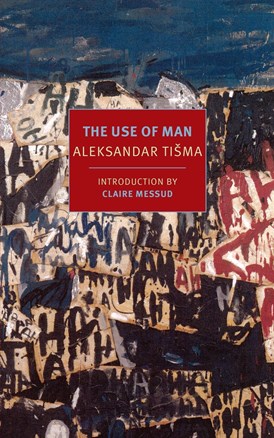Description
The Use of Man starts with an unexpected discovery. World War II is ending. Sredoje Lazukić has been fighting all through it. Now, as one of the victorious Partisans, he has come home to Novi Sad. He visits the house he grew up in. Strangers nervously show him around. He looks up the mother of Milinko, his best friend. Milinko’s girlfriend, Vera, was the daughter of a Jew, a bookish businessman. Her house stands empty and open. Venturing in, Sredoje is surprised to find the diary of the German tutor that Milinko, Vera, and he all shared, Fräulein, who died on the operating table just before the war. Here, however, in a cheap notebook in Vera’s old room, is a record of Fräulein’s lonely days, with the sentimental caption Poésie. . . . The diary survived. Sredoje survived. Vera and Milinko have survived too. But what survives? A few years back Sredoje, Vera, and Milinko were teenagers, struggling to make sense of life. Life, they now know, can be more bitter than death. A work of stark poetry and illimitable sadness, The Use of Man is one of the great books of the 20th century.
About the Author
Aleksandar Tišma (rođen 16. januara 1924. u Horgošu, preminuo 16. februara 2003. u Novom Sadu) je bio jugoslovenski i srpski pesnik i pisac. U njegovim delima najviše su zastupljene lirske pesme, zatim romani i novele.Bio je urednik Letopisa Matice srpske u periodu od 1969. do 1973.Osnovnu školu i gimnaziju pohađao je u Novom Sadu. Maturirao je 1942. godine. U Budimpešti je studirao (od 1942. do 1943.) ekonomiju pa romanistiku. Stupio je u narodnooslobodilačku borbu decembra 1944. godine. Demobilisan je novembra 1945. godine, nakon čega se zaposlio kao novinar u Novom Sadu, u „Slobodnoj Vojvodini“, a zatim, 1947. godine, u Beogradu, u „Borbi“. Na beogradskom Filozofskom fakultetu 1954 godine diplomirao je anglistiku. Od 1949. je živeo u Novom Sadu i radio u izdavačkom preduzeću „Matica srpska“, najpre kao sekretar, a posle i kao urednik.Tišma je nosilac više nagrada za prozu, poeziju i prevodilaštvo.========English:Aleksandar Tišma (1924–2003) was a Serbian writer of significant acclaim, known for his exploration of the human condition during and after World War II. Born in the city of Horgoš, in the Kingdom of Yugoslavia (now Serbia), Tišma was of mixed heritage, with a Serbian father and a Hungarian Jewish mother, a background that profoundly influenced his literary perspective.Tišma's early life was marked by the tumultuous events of World War II. He witnessed the horrors of the Holocaust and the complexities of identity in a region plagued by ethnic tensions. These experiences became central themes in his work, which often delved into the moral ambiguities of war, guilt, and the long shadows cast by historical trauma.He studied in Budapest and Belgrade, and eventually settled in Novi Sad, where he worked as a journalist and editor before dedicating himself fully to writing. Tišma's breakthrough came with the novelThe Use of Man(1976), which is often regarded as one of his most powerful works. The novel explores the lives of a group of people before, during, and after the war, dissecting the devastating impact of the conflict on their psyches and relationships.Another significant work,Kapo(1987), further established Tišma's reputation as a masterful chronicler of human frailty and complicity in evil. This novel, which tells the story of a Jewish concentration camp inmate who becomes a kapo (a prisoner assigned to supervise other prisoners), raises difficult questions about survival, collaboration, and the corrupting influence of power.Throughout his career, Tišma wrote with a stark, unflinching style, often employing sparse language to convey the depth of his characters' suffering. His works are marked by a deep empathy for his characters, even as he explores their darkest impulses and moral failings.Tišma's contributions to literature were recognized both in his homeland and internationally. His work was translated into many languages, bringing his harrowing yet insightful depictions of life in wartime Eastern Europe to a global audience. He received numerous awards, including the prestigious NIN Award, one of the highest literary honors in the former Yugoslavia.Aleksandar Tišma passed away in 2003, but his legacy endures through his powerful body of work, which continues to resonate with readers and offers a profound exploration of the complexities of human nature in the face of atrocity.
